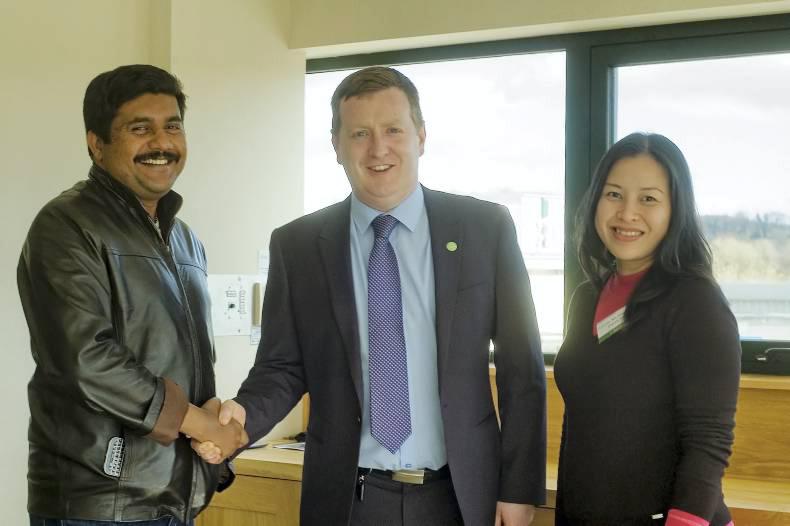Fifteen buyers from Asian and Arab nations as well as Zambia and the US embarked on a tour of Irish beef and lamb factories this week, offering insights into the needs of their growing meat markets.
The purchasing manager of Faragalla, an Egyptian manufacturer of processed beef products, said his country’s economy is recovering after several years of political upheaval. Mohamed Fayek wants to restore trade ties to pre-BSE levels, where most of his beef came from Ireland. “Its quality and taste are incomparable,” he said.
One issue is sanitary approval by the Egyptian authorities, and Fayek says he has been asking his government to relax requirements for their own vets to monitor processing here. Yet the availability of beef slaughtered in the Muslim tradition is another concern. “I’m waiting for action by Irish factories to fulfil the requirements of exporting beef to Egypt, and that is to make it halal,” he said. “When they are ready, we are ready.”
Hussein Harb, another Egyptian importer with El Mahmal Group in Cairo, agreed – as did two representatives from Indoguna, a food trading company with offices across the Indian Ocean.
“In the United Arab Emirates, apart from approval by the authorities, everything needs to be halal, and the same goes for Saudi Arabia,” said Anoop Kumar Varma, sales manager in Dubai. His colleague Eleena Cheah, who oversees sales in Singapore, added that halal meat was not an essential requirement there but demand for it was growing: “The Muslim community is becoming more and more affluent and hotels and restaurants want to cater to them. Airlines, too, are more and more interested in serving halal meat only, so that Muslims and non-Muslims alike can eat it.”
Ritual slaughtering
Ritual slaughtering involves accredited workers slitting the animal’s throat according to detailed rules that can be different in various Muslim communities. Some methods have raised animal welfare concerns and Irish processors tread cautiously about this issue.
Joe Hyland, managing director of Irish Country Meats (ICM) said halal meat had to be produced “in a humane way”. After showing the company’s lamb factory in Camolin, Co Wexford, to international visitors on Tuesday, he added: “If opportunities present in international markets where halal is a requirement, we need to understand what their specifications are and whether we’re in a position to service that market.”
As foreign visitors toured abattoirs and boning halls around the country, they revealed more details about their preferences. A Japanese buyer took close-up pictures of beef tongues at the Kepak beef plant in Clonee, Co Meath, and asked whether lambs’ heads from ICM are shipped with or without the tongue. Egypt’s Hussein Harb also asked for detailed information on offal, while a Zambian buyer insisted that lamb sausage products bound for his country should use natural lamb guts as casings – a method not favoured by Irish consumers. ICM staff assured them that all specific requests could be accommodated.
“The more markets you have access to, the easier it is to find the best trading model to optimise revenue on the full carcase,” Joe Hyland said.






 This is a subscriber-only article
This is a subscriber-only article











SHARING OPTIONS: